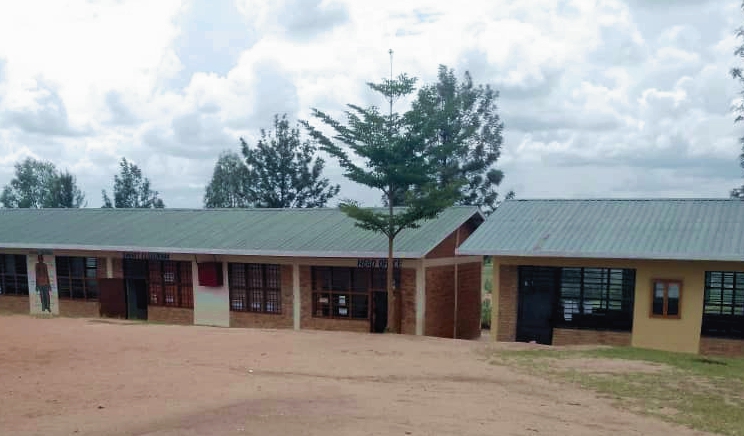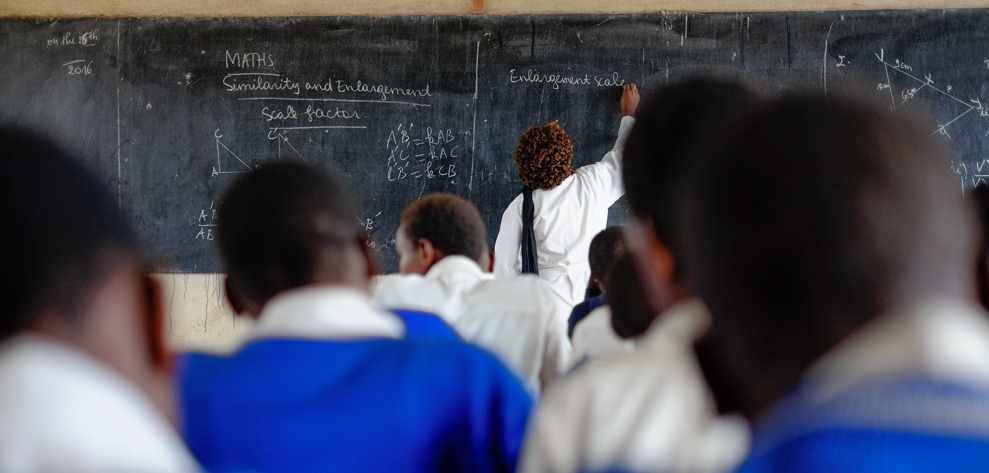In 2022, our teams visited 376 schools to interview school leaders and teachers, oversee student and teacher assessments, and carry out classroom observations. This work has given us rich datasets to better understand teaching and learning in Rwandan schools. Drawing on this experience, Data Manager Jean Claude Rukundo and Senior Field Supervisor Tresor Rureshya have put together this best practice guide for collecting data in Rwandan schools.
Approvals are a must
At a minimum, we need approval from the National Institute of Statistics Rwanda, National Commission of Science and Technology, and the Rwanda National Ethics Committee to collect data in schools. But district, sector and school-level approvals are just as important, plus endorsement from the Rwanda Basic Education Board or Ministry of Local Government.
The school leader generally consents to the school’s participation, but consent from teachers and students is also critical. If we are asking students personal questions, we need consent from their parents as well.
Understand the academic calendar
The school calendar is announced a few weeks before lessons begin. The school year recently shifted in 2021, with teaching taking place from September to June. It’s best to wait until the school calendar has been released before finalizing plans.
We also don’t send the teams at the start of term – we give a few weeks for schools to settle in before starting fieldwork. In the first week, we usually send teams to obtain local approvals.
Depending on the activity, we call the school leaders a few days before to confirm the class timetables. In some cases, the school changes the timetable at the last minute which can affect our activities. You don’t want to send enumerators for classroom observations when there’s no class scheduled for the subject you want to observe.
There are also certain periods of the year when data collection isn’t recommended, such as exam and revision periods. Students are busy at this time and we don’t want to disrupt them.

A secondary school visited in 2022
Work with the school timetable and send a small team
In Rwandan secondary schools, teaching periods are 40 minutes long. If a questionnaire takes an hour to complete, this means you’ll take two periods from a teacher. Teachers have told us that this makes it difficult for them to complete their daily lesson plans so we do our best to tailor assessments to the timetable. Sending a smaller team that spends more time at the school helps both the team and school better rearrange planned research activities.
Currently the school timetable is from 7am to 5pm. To avoid a situation where students are kept at school late, don’t put assessments in the afternoon or at lunchtime – no one will be focused then. It’s best to do these in the morning when students are fresh. For classroom observations, we aim for a mix of morning and afternoon observations to understand what teaching and learning look like at different times of day.
On the other hand, it’s good to give teachers autonomy to do assessments in their own time, usually in private. When you ask them to do assessments during class, students think the teacher is being evaluated, which isn’t the intention.
Take culture into consideration
In rural areas, especially those near the border with other countries, students might speak different languages or dialects. Sometimes this might cause students to be shy. When travelling to these regions, we need to understand which terms might be understood differently. For example, the Kinyarwanda word for “dog” is “imbwa”, but in some regional dialects it is called “impigi”.
During the pilot, we always try to include parts of the country with different dialects so that we can adjust ahead of time to fit the local dialect. We also try to select enumerators with some teaching experience since they are skilled at building rapport with students and explaining tasks. This helps a lot, because sometimes students fail to do the assessments right because they didn’t understand the explanation.
Share findings with teachers
Some research projects we work on, such as Leaders in Teaching, involve visiting the same schools at several time periods. This provides researchers with a rich dataset, but it takes a lot of time from teachers, school leaders and students.
Teachers ask us: We have answered your questions so many times, what is the outcome? How am I benefitting from this?
This year, with support from the UK Economic and Social Research Council and the REAL Centre at the University of Cambridge, we were able to give each teacher and school leader involved in the research a Kinyarwanda summary of the research findings.
We found that participants were happy to receive this information. Sharing the findings reassured them that the study wasn’t about assessing their performance; and that they were contributing to research that aims to strengthen the country’s education system.
Our experiences have taught us that flexibility, communication, and respect are key when conducting data collection in schools for the benefit of everyone involved.
This blog post was written by Jean Claude Rukundo, Data Manager, and Tresor Rureshya, Senior Field Supervisor, both of Laterite Rwanda.
